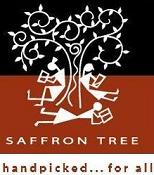The Post I Wanted Publish After A Very Long Time…
Author: utbt2 Mar 2018
…and almost didn’t because I couldn’t remember the password to the blog. Yes, it has been that long!
In my bookclubs, after we finish the story, I like to explore the quality of words with the little ones.
It so happens that I have an all boys group between 5 yrs and 8 yrs currently. We speak about everything from fart(which they think I never do and who am I to disagree?!) to the f-letter word(apparently it is fool. Again, who am I to disagree?!)
We take a word, sound it out, try the spelling, discuss about the c that is telling its name instead of its sound, the e that slept without making any noise etc. Then we talk about the meaning of the word. After this I ask them to make sentences with the word.
Sometimes there is a minimalistic sentence.
Excited – ‘I am excited’(this in the most unexcited voice ever).
‘No mam, that is all.
No, I don’t want to tell you about what.
No, I don’t want to tell why.
I am excited, that is it.
Don’t ask me anything about my excitement.’
Sometimes there is a story.
Child: Respect – Sometimes, when my mother is nice to me, I respect her.
Me: Your mother is nice to you sometimes or of the times she is nice to you, you respect her sometimes? Where does the sometimes belong? That is important, it changes the meaning of the sentence.
Child: Errr…… I think it is that second meaning you said.
Child: Respect – I respect the girls in my class.
Me: (Almost standing up in joy) That is so sweet. And a perfect sentence too.
Child:(With a bit of guilt and puppy dog eyes) Mam, that is a little bit not true. I fully respect Purnima. But Ria….no. Ria is always complain complain complain about me. So no respect to Ria.
Me: Okay, fair enough 🙂
Sometimes there is an ‘r’ missing.
No symbolism here. The child has difficulty pronouncing ‘r’ and I find it cute and give him more words with ‘r’. ‘Mam the twittel of bilds is vely illitating. Is that a good sentence with twittel? Should I wlite it? Mam I don’t want to wlite. I don’t like wliting.’
Sometimes there is an unexpected reward for me. We would be talking about the word empathy and suddenly some one will pipe up and say, ‘Like in Dorje’s Stripes, when the tiger was suffering the master felt bad for him, that is empathy right?!’ Or we are discussing the word pleasant and they all remember The Pleasant Rakshasa and say, ‘We know the meaning mam. You told us when we read Pleasant Rakshasa book. To be pleasant is to be like Karimuga.’
It is delightful. This whole process. Many times I keep harping on and on about dying tigers and China occupying Tibet and plastic bags polluting the Earth and wonder if they are understanding it… they do get it, in their own way.

 (No Ratings Yet)
(No Ratings Yet)
One Response for "The Post I Wanted Publish After A Very Long Time…"
Yaaaayy UTBT is baaack ! Hope you continue to write and publish posts (anything counts – even renaming your kitchen knives to Tamil-cinema-themed names)
Leave a reply